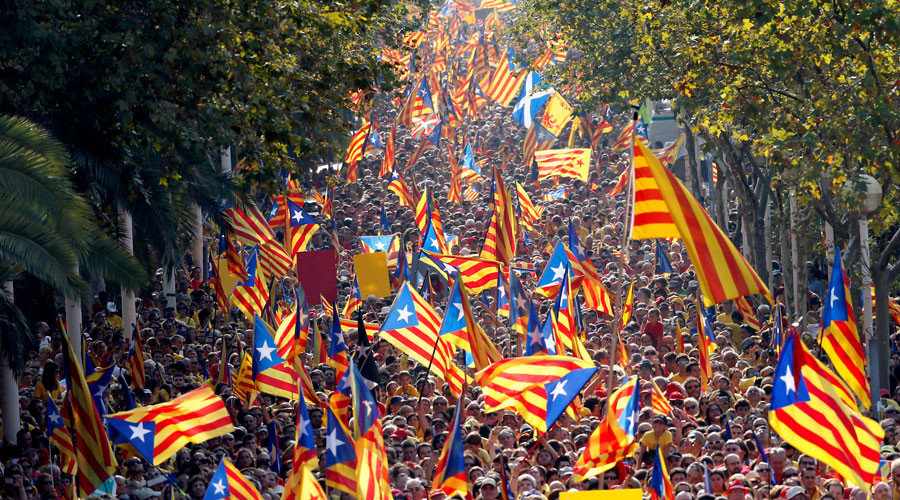Catalonia’s next move
September 11, 2017 | Expert Insights

Thousands are expected to take to the streets of Catalonia in favor of independence from Spain.
Background
Catalonia is one of the most industrialized regions in Spain. Barcelona is the region’s largest city as well as its capital. Even though it is part of Spain, the region has a distinct culture and history dating back to the Middle Ages. Many native Catalans think of themselves as separate from Spain.
The political movement for a separate state of Catalonia can be traced back to 1922. Francesc Macià, the 122nd President of Catalonia founded the independentist party Estat Català. In 1931, after winning the elections, Macia declared the independent state of Catalonia. After negotiations with Spain, he accepted autonomy rather than independence. However, during the Spanish Civil War, General Francisco Franco abolished that autonomy.
A non-binding Catalan self-determination referendum was held in 2014. Over 80% of the people voted in favor of independence. However, according to estimates, only 37% of Catalan residents voted in the ballot.
Analysis
The regional parliament of Catalonia had approved an independence referendum, which is slated to be held on October 1st, 2017. However, a High Court in Spain has suspended the referendum. The government in Madrid has also vowed to block the referendum. Regional officials in Catalonia have noted that they will still try and hold the vote regardless of the court’s ruling.
September 11 is Catalonia's national day and millions are expected to take to the streets in favor of the independence.
Additionally, there has been a disturbing trend of “fake news” in the press, which some believe is coming from the Spanish government itself. el Periodico, a newspaper that is considered pro-Madrid recently published a document. The document was a so-called correspondence from the CIA to the Barcelona police. It warned of possible terror attacks on May 25th. It has since been declared as a false document as it contained obvious errors.
Arkaitz Zubiaga, a visiting professor at Madrid's National University of Distance said, “The director of the newspaper admitted that it wasn't real, but said that it was a recreation built from bits of information they had received from unspecified sources. The way in which this was reported with later clarifications, and the reference to unspecified sources, made it still very questionable.”
Assessment
Our assessment is that the Catalan movement for freedom can result in significant consequences if the vote is held on October 1st. If people vote in favor of secession, then Catalan President Puigdemont has vowed to declare independence within 48 hours. This would mean Catalonia will be filled with residents of the European Union without actually being a member of the EU. Additionally, Spanish government could refuse to recognize the new state and prevent it from becoming a member of the EU. Catalonia’s next move could affect the politics of EU for years to come.








Comments